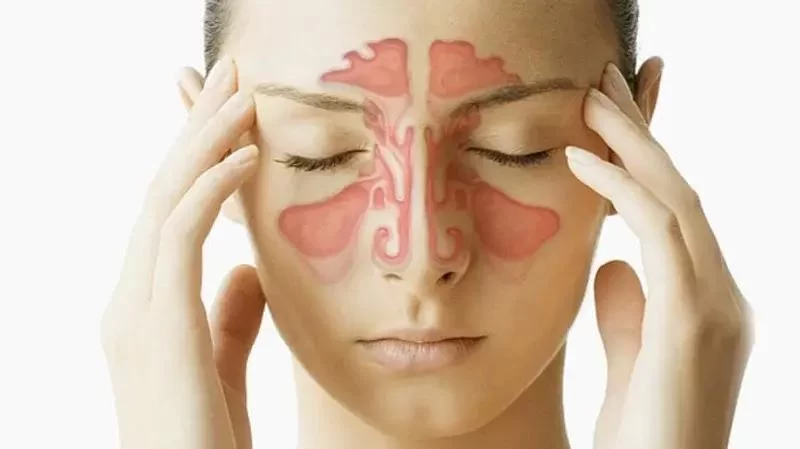
- why-sinus-infections-cause-tooth-pain
- how-to-differentiate-sinus-pain-from-dental-issues
- how-to-treat-tooth-pain-caused-by-sinus-infection
- real-case-james-sinus-misdiagnosis
- when-to-seek-help-dentistry-toothtruth
1. Why Sinus Infections Cause Tooth Pain
It may seem strange, but sinus infections are a surprisingly common cause of tooth pain. The roots of your upper back teeth are located very close to the maxillary sinuses. When these sinuses become inflamed or filled with mucus, the pressure can radiate downward, triggering discomfort that feels like a toothache.
This type of pain is often mistaken for a cavity or other dental issue. The most telling sign? The pain often affects multiple teeth and may worsen when bending over or lying down—classic symptoms of sinus pressure rather than an isolated tooth problem.
Understanding the connection between your sinuses and dental pain is the first step to choosing the right treatment. Misdiagnosing it as a dental issue can lead to unnecessary procedures, while ignoring it can result in persistent discomfort and worsening sinus issues.
2. How to Differentiate Sinus Pain from Dental Issues
So, how can you tell if your toothache is from a sinus infection or a true dental problem? A few key indicators can help you distinguish between the two:
First, consider the location and type of pain. Sinus-related pain is typically dull, spread out across several upper teeth, and may come with other sinus symptoms like facial pressure, nasal congestion, or post-nasal drip.
In contrast, pain from dental decay or an infected root is often sharp, isolated, and worsens with heat or cold. Also, dental pain usually doesn’t go away with sinus medications or nasal decongestants.
When in doubt, consult a professional. At Dentistry Toothtruth, we connect patients with experts who can accurately diagnose whether your discomfort stems from a sinus issue or a true dental concern.
3. How to Treat Tooth Pain Caused by Sinus Infection
Once you’re confident that the root of the problem is a sinus infection, treatment should focus on reducing the sinus inflammation and pressure—not drilling into your tooth.
Start with over-the-counter options such as saline nasal sprays, decongestants like pseudoephedrine, and anti-inflammatory pain relievers such as ibuprofen. These help drain the sinuses and reduce the pressure that’s pressing on your tooth nerves.
Warm compresses over the sinuses, steam inhalation, and staying hydrated can also help thin the mucus and speed up recovery. Some people find relief from using essential oils like eucalyptus in a diffuser or bath.
If symptoms persist beyond 10 days or worsen over time, you may be dealing with bacterial sinusitis that requires a course of antibiotics. Always consult a healthcare provider before starting any prescription treatment.
While these methods target the sinus infection itself, the tooth pain typically subsides as the underlying inflammation improves. But if the pain lingers, consult a dental professional to rule out any coexisting dental problems.
4. Real Case: James’ Sinus Misdiagnosis
James, a 38-year-old graphic designer, visited his dentist with a persistent ache in his upper molars. He was convinced he needed a filling, maybe even a root canal. But the dentist found no signs of decay or infection.
After further discussion, James revealed he’d recently gotten over a cold and had lingering nasal congestion. The dentist suspected sinus involvement and referred him to an ENT specialist. A scan confirmed sinus inflammation pressing on the nerves near his molars.
Within days of starting decongestants and using a humidifier, James’ “toothache” was gone. His story is a powerful reminder that not every tooth pain points to a dental issue. Accurate diagnosis can save you time, money, and unnecessary procedures.
5. When to Seek Help: Dentistry Toothtruth
If you're struggling with tooth pain and suspect a sinus infection might be to blame, don't play the guessing game. At Dentistry Toothtruth, we help you find the right professionals who understand the nuance between dental and sinus-related issues.
From expert evaluations to recommended over-the-counter products for sinus pressure relief, our resources are designed to guide you toward the right solution. Don’t let sinus infection tooth pain linger—timely treatment can bring fast, lasting relief.
Whether you’re dealing with a cold, allergies, or chronic sinusitis, the impact on your teeth can be real. Understanding how to treat tooth pain caused by sinus infection not only spares you from unnecessary dental work but also empowers you to take better care of your overall health.







 Anthony Vuong DDS5.0 (1 review)
Anthony Vuong DDS5.0 (1 review) NLV Dental Group4.0 (18 review)
NLV Dental Group4.0 (18 review) Halifax Family Dental4.0 (307 review)
Halifax Family Dental4.0 (307 review) Leardi Family Dentistry4.0 (135 review)
Leardi Family Dentistry4.0 (135 review) Your Downtown Dentistry4.0 (249 review)
Your Downtown Dentistry4.0 (249 review) Advanced Family Smile Care P.C.4.0 (237 review)
Advanced Family Smile Care P.C.4.0 (237 review) The Importance of Oral Health Education During Pregnancy for a Healthy Pregnancy
The Importance of Oral Health Education During Pregnancy for a Healthy Pregnancy Best Tips for Brushing Your Teeth Properly for Healthy Gums: Essential Techniques for Oral Health
Best Tips for Brushing Your Teeth Properly for Healthy Gums: Essential Techniques for Oral Health Why Skipping Dental Checkups Can Lead to Bigger Oral Health Problems
Why Skipping Dental Checkups Can Lead to Bigger Oral Health Problems Advantages of Porcelain Dental Restorations
Advantages of Porcelain Dental Restorations How Can Diabetes Cause Tooth and Gum Problems? Preventing and Managing Oral Health Issues
How Can Diabetes Cause Tooth and Gum Problems? Preventing and Managing Oral Health Issues Healthy Habits for Promoting Good Oral Health and Hygiene: Tips for a Healthy Smile
Healthy Habits for Promoting Good Oral Health and Hygiene: Tips for a Healthy Smile